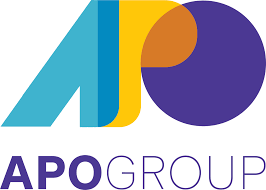Sierra Leone Should Adopt Fiscal Consolidation Measures to Ensure a Sustainable Economic Environment
Content provided by APO Group. CNBC Africa provides content from APO Group as a service to its readers and does not edit the articles it publishes. CNBC Africa is not responsible for the content provided by APO Group.
Sierra Leone’s economy grew by 5.7% in 2023, exceeding expectations, driven by strong performance in the mining sector. However, growth is projected to slow to 4.3% in 2024 due to declining iron ore prices, according to the new World Bank Sierra Leone Economic Update launched today. The report notes a slightly optimistic medium-term outlook, with growth expected to recover to its long-term average of 4.6%, supported by a resurgence in the service sector, improved agricultural productivity, robust mining sector performance, and continued fiscal consolidation efforts to restore macroeconomic stability.
The report provides a comprehensive analysis of Sierra Leone’s economic performance, key challenges, and opportunities for sustainable growth, while highlighting the country’s resilience in the face of global headwinds and emphasizing the need for decisive action to address critical issues.
“Sierra Leone has shown remarkable resilience and potential for recovery despite the development challenges it continues to face,” said Abdu Muwonge, World Bank Country Manager for Sierra Leone. “The findings of this report underscore the critical need for fiscal discipline and strategic investments and reforms in key sectors like energy, which remains a binding constraint to sustainable development in Sierra Leone. Therefore, focus must now be directed at implementing the recommendations in the Energy Action Plan 2030 and improving on the modest progress made on the macroeconomy to support sustainable growth and development.”
Sierra Leone’s public debt-to-GDP decreased from 53% in 2022 to 46.2% in 2023, aided by a stable exchange rate and higher nominal GDP growth. Despite this improvement, the report raises concerns about increasing debt service obligations and the heavy reliance on costly domestic borrowing. The country remains at high risk of debt distress, with sustainability dependent on strong fiscal adjustments and macroeconomic stability. Rising debt stock and payments have increased liquidity risks as domestic revenue performance remains weak. Inflationary pressures have eased but remain elevated, even as the Bank of Sierra Leone continues to tighten monetary policy to rein inflation. Looking ahead, the report identifies opportunities for sustained growth in mining, agriculture, and services. It highlights the importance of bolstering the agricultural sector, improving infrastructure, especially in energy, and maintaining a focus on social spending in education and healthcare to support long-term development.
“The economic performance of Sierra Leone in 2023 highlights both the progress, opportunities and challenges ahead. While the mining sector has been a significant driver of growth, it is crucial to diversify and strengthen other sectors such as agriculture and services to ensure long-term stability and resilience,” said Michael Saffa, World Bank Senior Country Economist and lead author of the report.
The 2024 Economic Update devotes a special topic on the energy sector – “Unlocking the Potential of the Power Sector in Sierra Leone – Breaking the Crisis Cycle” – examining how limited access to electricity hinders economic development and growth. The report underscores the significant fiscal risk posed by the energy sector with high subsidies provided to the sector due to operational inefficiencies and huge arrears owed to independent power producers. It however recognizes the government’s efforts through its Action Plan 2030, which aims to achieve financial sustainability and universal access to electricity by 2030.
To help restore macroeconomic stability, the report presents key policy priorities, including the need to remain committed to fiscal consolidation efforts, enhance revenue mobilization, and control expenditures; strengthen the energy sector through reforming the Electricity Distribution and Supply Authority (EDSA) to improve its performance, transitioning to renewable energy sources and attracting private sector investment to ensure a more reliable and sustainable energy supply; and improve debt management. Furthermore, continued tightening of monetary policy will ease inflationary pressure while promoting financial inclusion, particularly by expanding access to finance for micro, small, and medium enterprises.
Distributed by APO Group on behalf of The World Bank Group.


 | Thu, 10 Oct 2024 11:45:43 GMT
| Thu, 10 Oct 2024 11:45:43 GMT